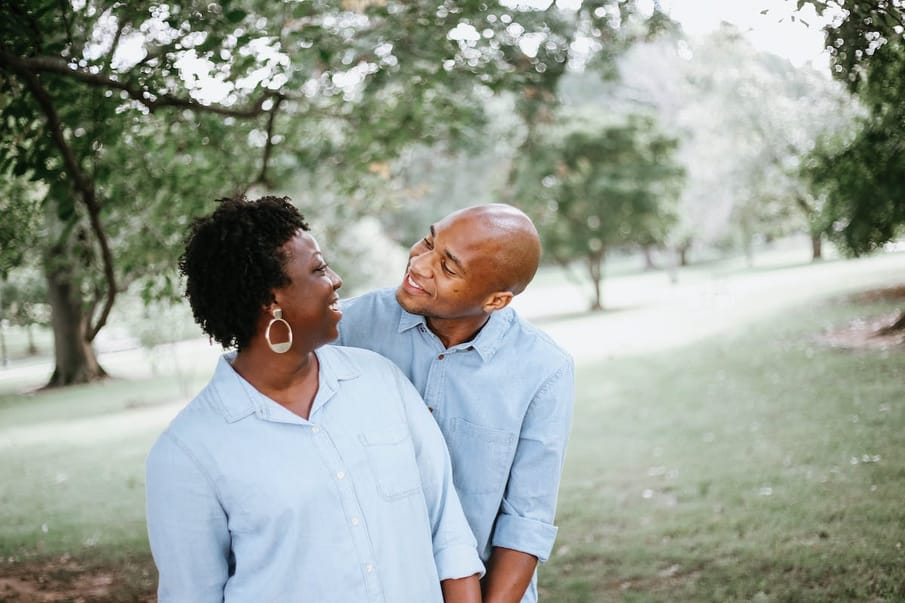Investigating what happens in our brains in the whirlwind of romance, and why we might feel imposter syndrome in our relationships as a result
Romantic love is one of the most celebrated concepts in our society, with swathes of art, movies, and songs made about it, inspired by the powerful effect it has on us. Because of these rose-tinted notions on our screens, we can create big, romanticised images in our minds of what love should look like and how we should be in that image. Sometimes, that picture becomes so idealised that we feel we fall short of those expectations.
What we must first acknowledge when we have anxious thoughts about our relationship is that, despite what Instagram or Disney movies might have us believe, absolutely everybody on the planet will experience some form of insecurity or doubt from time to time. Our brains have a natural negativity bias that will cause us to question any aspect of our lives at some point. We are much more tolerant of this negativity bias in our career, friendships, and family, because we expect that not everything is going to be perfect all the time in those areas, but for many, our expectations of ourselves in love can be much higher.
This negativity bias can be further exacerbated in love because it is such an intense neurochemical whirlwind of emotions. Relationships trigger deep biological and primal urges for safety, as procreation and being with a partner increases our chances of survival. Our brains place a lot of importance on that loving feeling as a result, pumping us full of reward chemicals and stress hormones in those early days of dating.
The brain in love essentially becomes addicted to its object of desire, with research, notably by Professor Semir Zeki and Dr Andreas Bartels published in NeuroReport, suggesting that during the ‘honeymoon period’, serotonin drops to the same levels as those with OCD. This not only affects our mood, but brings about obsessional thinking, where you can’t focus on anything except your partner’s eye colour, or the way they scratch their ear. In this period, activity in the prefrontal cortex also decreases, which is why we experience a dip in our decision-making abilities, and see things a little less objectively.
Once that honeymoon period is over, the neurochemical storm in our brain begins to calm, and we can see things more clearly. It is that period when our partner’s habit of not putting the lid back on the toothpaste or their lack of navigation skills in the car becomes more noticeable. This is, in fact, a good thing, because it means we can see and accept our partner for who they are: human.
When we experience imposter syndrome in relationships (that feeling of ‘being found out’ by our partner as not deserving of their love), a common pattern I see in clients who go on to report relationship insecurity is that this period can be terrifying. Fuelled by society’s perfect image of love, it can make us feel like we need to maintain this standard in our own love life. This can be exhausting, generating more anxiety which, over time, leads us to seeing ourselves in the relationship through a more negative lens.
To work on combating anxious thoughts in a relationship, the first thing to do is start with yourself. This is the most important relationship you will have in life, and, like any relationship, it requires care, compassion, and effort. The stronger your self-esteem becomes, the more self-sufficient and secure you will feel both in and out of the relationship. You will also become more objective and better able to see your relationship as it is, not how you fear it might be. Studies, such as 2022 research published in Emotion, have shown that regular mindfulness practice with a focus on compassion, like the Buddhist loving kindness (Metta) meditation, can reduce anxiety in those who experience relationship insecurity, and can be a powerful tool in building self-worth.
The second thing is to be honest with your partner, and seek mutual support through discussing your worries and concerns. Research from 2020, published in the International Journal of Environmental Research and Public Health, actually shows that a secure partner can buffer relationship insecurity in the other through honest communication about these thoughts. By articulating your feelings, you are giving your partner the opportunity to support you through them. You can also spend time thinking about what is going well in the relationship, how you are showing up for each other, and what can improve.
Authentic and honest communication with your partner helps you navigate the highs and lows of the relationship as a united front, helping you work towards the life you want, together.


Comments